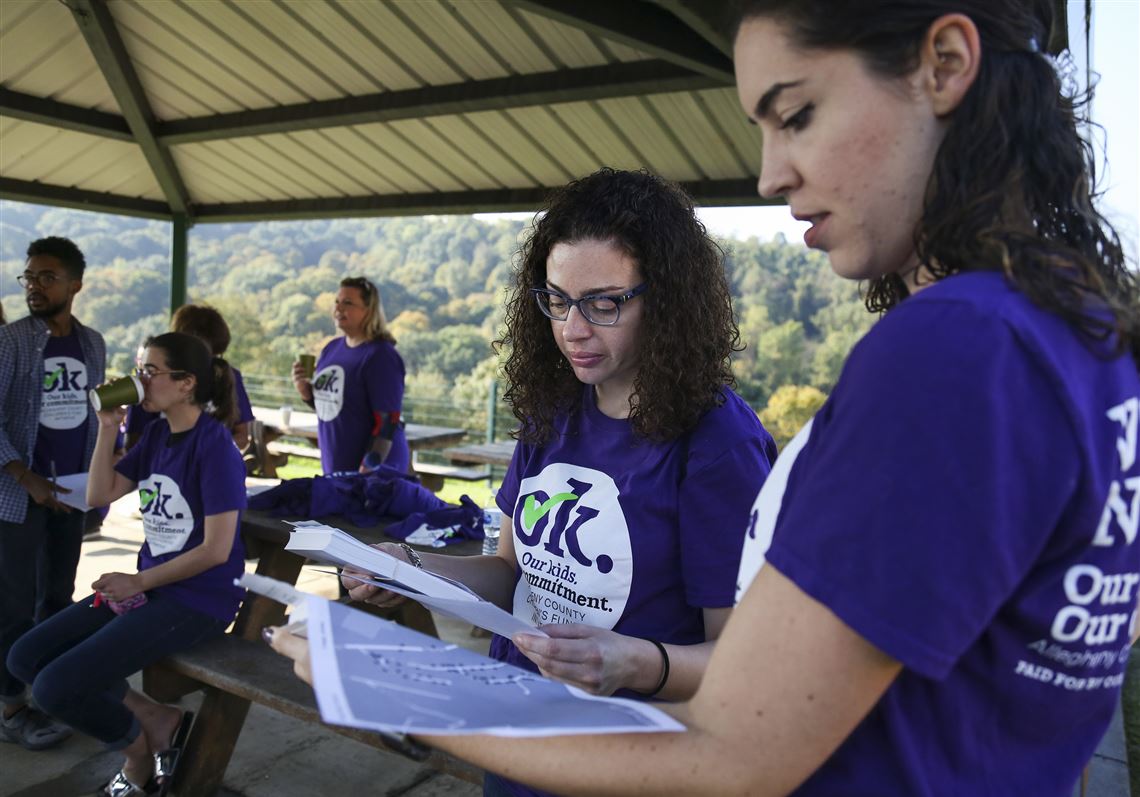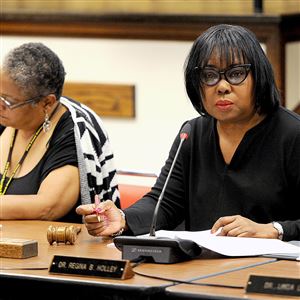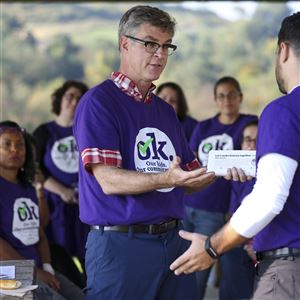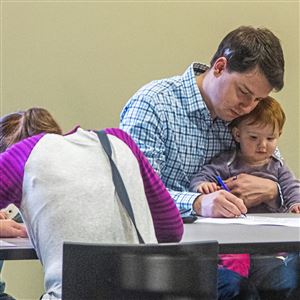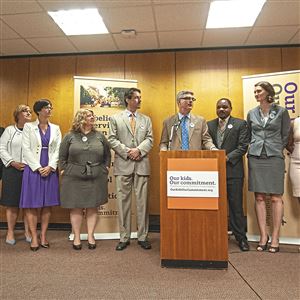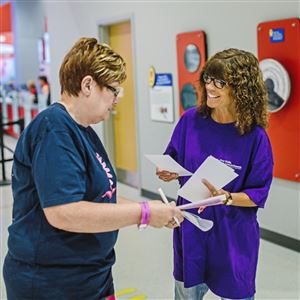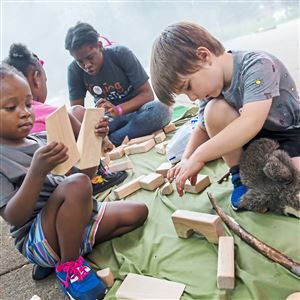In November, Allegheny County voters will decide if they should approve an additional property tax to pay for early learning, after-school programs and healthy meals for children.
It’s a step a number of other communities have taken.
Children’s funds around the country follow a variety of forms, relying on different revenue sources and supporting a range of program types. But there are some similarities between established funds and what local organizers say they want in an Allegheny County Children’s Fund.
Specifically, the concept can help people explore problems, encourage collaboration and avoid duplicating services, according to fund leaders elsewhere.
“Leadership and advocacy are as important as the resources,” said Cindy Arenberg Seltzer, president and CEO of the Children’s Services Council of Broward County, Fla. That fund was approved by voters in 2000 and supports nearly 100 programs with revenue from a property tax.
The local Children’s Services Council, a feature in some Florida counties, can bring people together to look at a problem, Ms. Seltzer said.
“We can put in money in key places where we see gaps,” she said.
Similarly, the St. Louis County Children’s Service Fund, just outside St. Louis, has made services less fragmented, said Emily Koenig, interim executive director.
“This has really filled a gap for a lot of families who struggled to get access to these services in the past,” she said of the fund, which has a focus on mental health issues for kids.
The fund in St. Louis County has struggled with criticism of spending decisions, a high fund balance and a personal payment made to a previous director that later was reimbursed, according to local media reports. Ms. Koenig downplayed those as past issues.
In Portland, Ore., a city commissioner championed a children’s fund after seeing a need for more services in the growing city, said Mary Gay Broderick, communications director for the Portland Children's Levy.
The effort there focuses on early childhood programs, after-school programs, mentoring, child-abuse prevention and intervention, foster care and hunger relief.
In Allegheny County, local advocates say the fund is necessary because it would provide local revenue to programs that are proven to help children — early learning, after-school programs and nutritious meals — and that currently don’t have enough state and funding to meet the need. It would be funded by 0.25 mills of property tax — $25 on each $100,000 of assessed value, beginning Jan. 1.
Some opponents and elected officials have said they don’t agree with raising property taxes to fund such programs.
If approved, changes to the county Home Rule Charter will establish an Office of the Allegheny County Children’s Fund as part of county government; the office would be under the supervision of the county manager.
A Citizens’ Advisory Commission would “review and advise” the work of the new office, according to the proposed charter amendment that voters will decide Nov. 6.
If voters approve the fund, county council and county Executive Rich Fitzgerald would pass an ordinance establishing the mechanism and the advisory commission, according to the proposed amendment. Money would be disbursed beginning in 2020, but the exact distribution of the funds has yet to be determined.
The roughly $18 million expected each year could go to existing programs or to new providers. Periodic audits would examine the fund, and every five years, a study would recommend goals and a programming focus.
Patrick Dowd, executive director of Allies for Children, said advocates pushing for the fund locally have studied and been in contact with other funds around the country. They have used elements of several in what they propose for Allegheny County, he said.
“We didn’t just pull from one. We pulled pieces. We’ve been having conversations for awhile with these folks,” Mr. Dowd said.
The steering committee advocating the fund includes Allies for Children, Allegheny Partners for Out-of-School Time, the Turtle Creek-based Human Services Center Corp., The Mentoring Partnership, Pressley Ridge, PUMP, Trying Together, United Way of Southwestern Pennsylvania, YWCA Greater Pittsburgh and Higher Achievement.
Fund leaders in other cities say they have been successful at improving outcomes for their kids.
“It’s no one else telling you what you need,” Ms. Seltzer, the Florida fund leader, said, adding that local oversight and community input are key to a fund’s success.
“The important thing for the voters to know is having an entity that has a dedicated funding stream to improve the lives of children can make a difference,” she said.
Kate Giammarise: kgiammarise@post-gazette.com or 412-263-3909.
First Published: October 8, 2018, 10:00 a.m.
Updated: October 8, 2018, 10:11 a.m.






